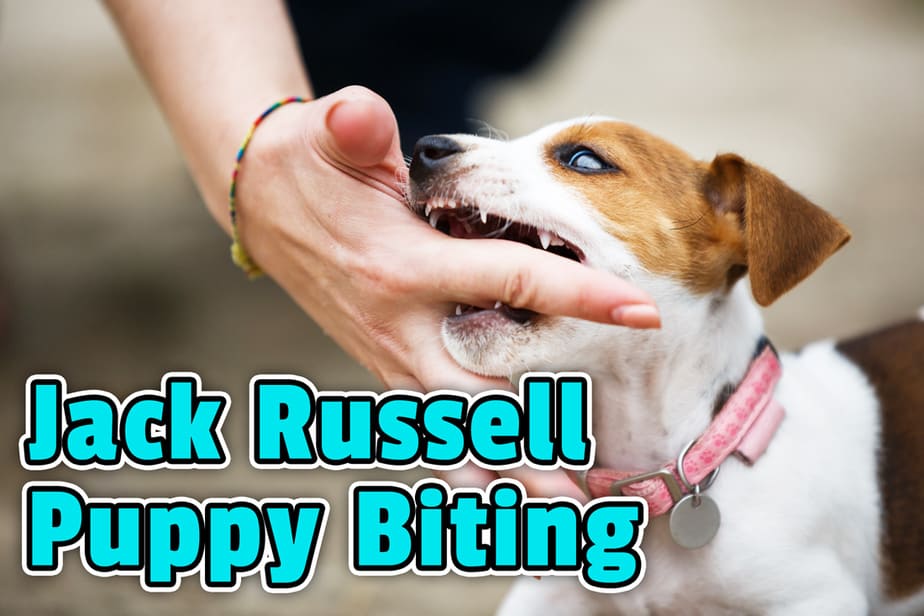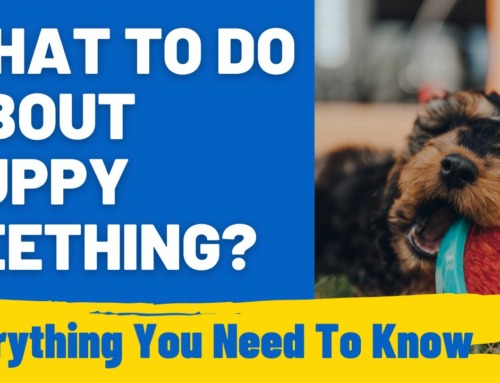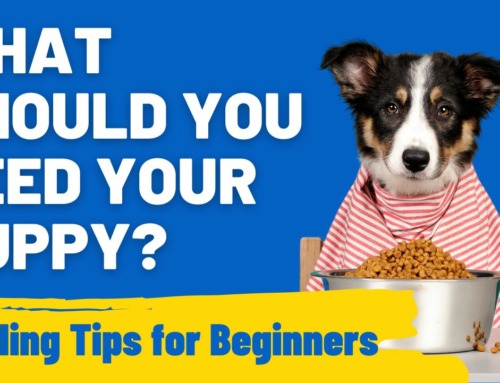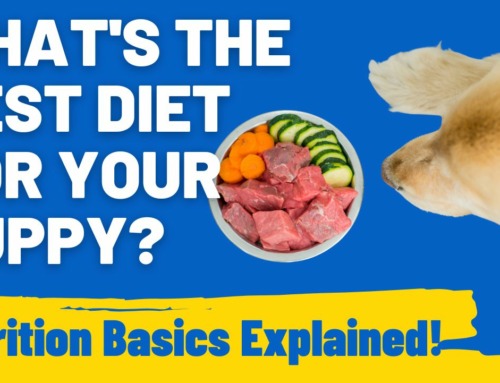One of the unfortunate realities is that Jack Russell puppies bite – and that they have super sharp teeth! Luckily, you can spend some time training your puppy and redirecting them to a more appropriate activity to reduce their biting.
Terriers, including the Jack Russell, in particular can be mouthy as puppies. We’re going to take a look at the stages of Jack Russell puppies and teething, how to reduce puppy biting, and when to seek out a professional trainer for more help.
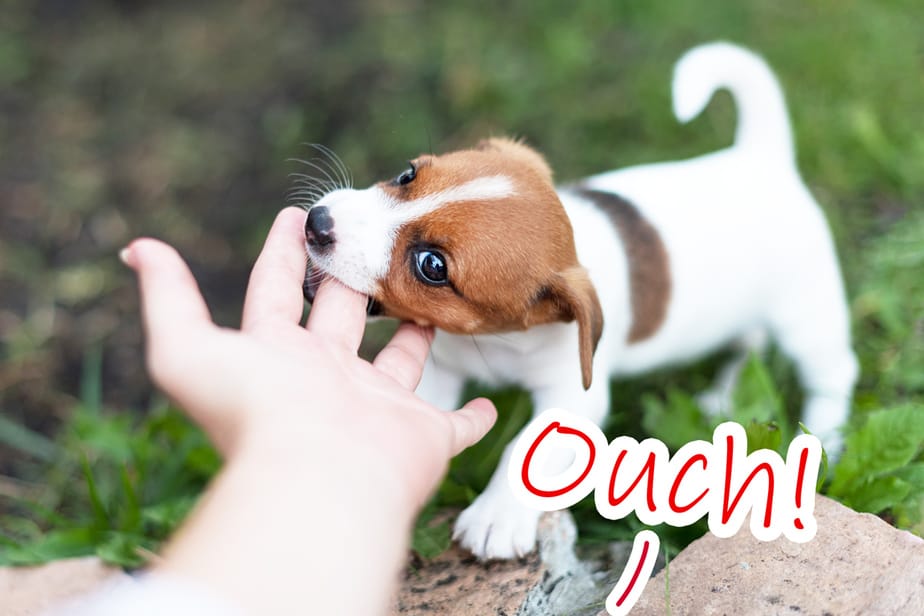
Puppies, Biting, and Sharp Teeth, Oh My!
When your Jack Russell puppy is born, they don’t have any teeth. Instead, their first teeth start to appear from below the gumline around 3-weeks of age. These teeth should be fully developed and in place by the time they are 6-weeks old.
These baby teeth are super sharp! This helps puppies learn bite inhibition, or how hard is OK to bite, when playing with their littermates.
Puppies learn a lot about play and dog-dog interactions from their siblings, and learning bite inhibition is one of the many reasons your puppy should stay with their litter until 8-10 weeks old.
If dogs are born as the only puppy in their litter or leave their litter early, they often lack the ability to properly control the pressure of their bite. They haven’t been shown otherwise.
This can result in minor scrapes, bruising, and even punctures when they play as an adult. This can happen both with other dogs and with people. Bite inhibition is a critical skill that is much harder to teach a Jack Russell puppy once they’re older.
Their baby teeth will last until they are just 12-16 weeks old. Around this time, between 3 and 4 months, their baby teeth will begin to fall out and be replaced by their adult teeth.
Most puppies have their full set of adult teeth by 6-months old.
Because of all the teething that is happening in a puppy under 6-months, it can sometimes seem like their biting and nipping is unbearable.
It’s important to try to redirect your young Jack Russell, and give them proper outlets for chewing, while also understanding that biting often gets better after teething is done.
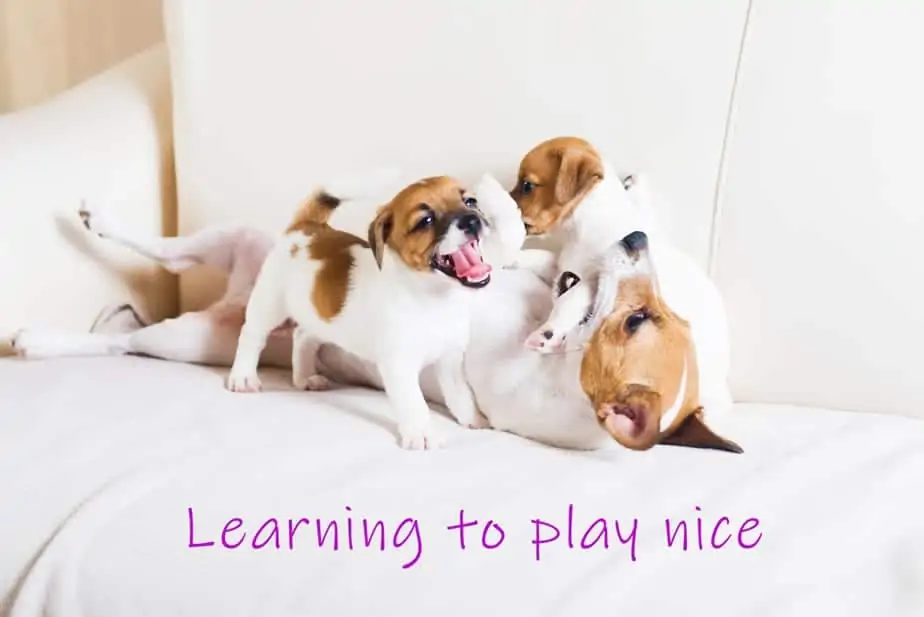
How to Reduce Puppy Biting
The first thing you’ll need to do is determine why your puppy is biting.
- Are they overly tired?
- Is their mouth sore because they are teething?
- Have they just not learned how to appropriately use their mouth?
Once the cause has been identified, you can proceed with one of the solutions below.
Trade a Toy
For puppies that are excited, playful, and don’t know how to appropriately use their mouth, the best thing to do is trade them a toy that is appropriate for chewing.
Puppies under 6-months that are teething likely truly need to chew, in order to relieve their sore mouth.
Even beyond 6-months, there are many individual dogs that benefit from getting to chew on something.
You’ll want to experiment with a few different options to see which toy your puppy prefers in each situation.
In general, a Jack Russell that is excited and biting your hands when they shouldn’t would do well to be redirected to a rope tug toy, or another toy that can be used in interactive play.
Your puppy wants to play at the moment, so it’s best to teach them to grab a toy and play with you and the toy instead of your hands alone.
Fleece tug toys can be long enough to keep your hands safely away from your puppy’s mouth, while also being easy to keep tucked in a pocket or waistband for when you need it.
A variety of plush and rubber toys can also be kept around the house for when your puppy needs to chew on something else instead.
It’s normal for you to get upset with your dog if they continually bite, in which case this post might help, Getting Mad at Your Dog: Everything to know
Teach Bite Inhibition
If your puppy just never learned not to bite with force, then it’ll be up to you to teach them.
When a Jack Russell puppy is in a litter and they bite on another puppy, they’ll get startled by a yelp. And often times if this is in a game, the other puppy stops playing, because they didn’t like that part of the game.
So as a human you can replicate this by doing the same. When your Jack Russell puppy bites with any force then you need to yelp and pull away your hand. You should also immediately stop playing the game if that was what you were doing at the time.
If their bite is soft, then it’s best just to use redirection to a toy, rather than yelping, as the bite inhibition has been taught.
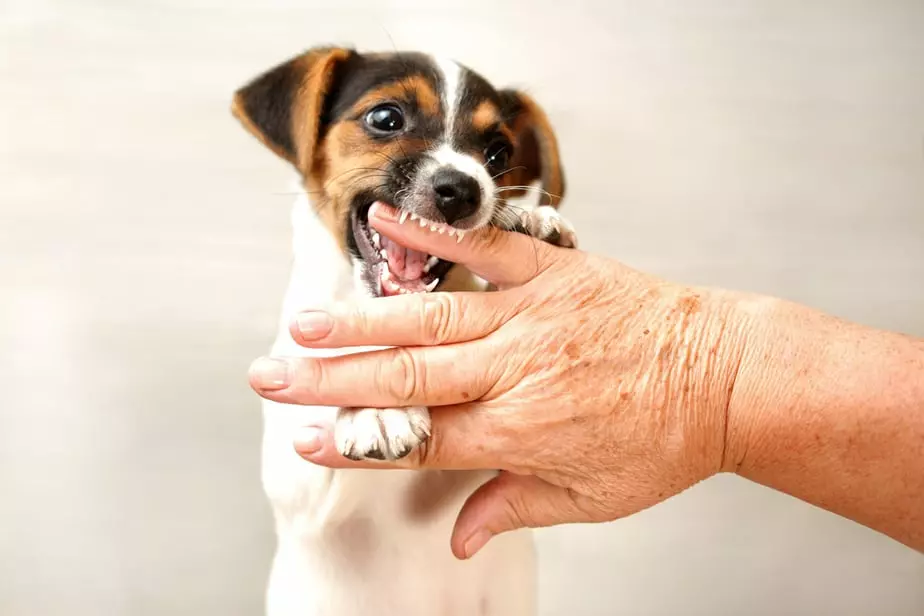
Soothe Their Teething Mouths
There are some toys that can directly soothe your Jack Russell puppy’s sore mouth when they are teething. You can consider using them to redirect your puppy as well as a prevention by giving them something appropriate to chew on instead.
One of my favorite options for puppies is a Kong toy, stuffed with their kibble mixed with a little wet dog food, applesauce, peanut butter, or plain yogurt, and then frozen.
Not only does a Kong that has frozen stuffing last longer, keeping your Jack Russel occupied, but the coolness of the frozen Kong is perfect for soothing angry puppy gums.
You can pick up a puppy Kong toy from Chewy for 6.99.
There are also some other toys that are specifically designed to be soaked with water and frozen, in order to keep puppies that are teething content, or just as a fun way to cool off in the summer.
Here is a Nylabone Chill & Chew Freezer toy which would be perfect for a little Jack Russell puppy.
You can DIY some frozen toys and chews too, by putting a rope toy in the freezer after soaking it in water, or even freezing carrots as a healthy chew option for your dog.
Finally, there are many good options for chew toys available commercially. These may not be cold and frozen, but they are still good options for letting your Jack Russel have an appropriate object to chew.
There are a variety of textures and flavors available. Rawhides and some Nylabones are going to be softer, and designed to be eaten, so they should only be given when you can monitor your puppy.
Other options, like the Benebone and harder Nylabones, will be quite a hard and compact material that can take your puppy plenty of time to chew.
You may have to experiment to see which your puppy prefers. I had a wishbone shaped Benebone that I had gotten for my dog, Windigo, that sat almost untouched for a year. He didn’t like the hardness of the chew.
After I got my younger dog, Hobbes, though, it’s been a favorite of his. Windigo prefers chews that are rubber and softer, while Hobbes enjoys chews that are much harder and solid.
Give Them a Nap
Jack Russell puppies should sleep at least 20-22 hours of the day. This means that if you are staying at home with your puppy and not giving them nap time, they may be biting simply because they are tired.
There’s a saying that a “tired dog is a good dog” and it’s true, but only to an extent.
Puppies often don’t know how to take a break on their own. Unless you put your puppy in a crate, exercise pen, or in another situation in which they are encouraged to take a nap, your puppy is running on empty.
We all know that our ability to function and be kind often decreases when we are lacking sleep, and the same goes for puppies.
Rather than taking a nap on their own, they run around like a toddler that missed their nap, causing trouble instead.
If you’ve tried redirecting your Jack Russel and they have chew toys available, your puppy probably just needs a nap instead.
This is the perfect opportunity to practice having your puppy spend time in their crate or otherwise away from you – when they are already tired.
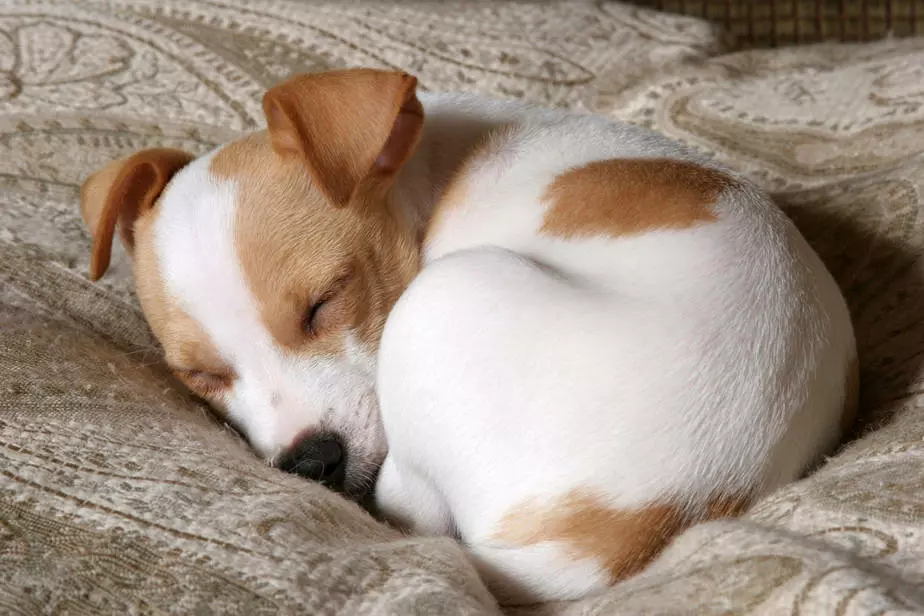
Time Outs
If your Jack Russel puppy is still biting even after you’ve tried all other options, then it’s time to give them a Time-Out.
Using a short time-out will teach them that the behavior they are currently using will remove the fun.
Take them to a pen or a tie down is also another good choice. You can use a crate but be vary careful that you don’t associate their crate with a negative feeling.
For these to work effectively, be consistent. When play isn’t what you deem appropriate, then take them for their time-out immediately. Don’t use eye contact and don’t talk to them.
Allow them to realize they’ve lost all reaction from you.
30-seconds should be sufficient to teaching the lesson. At the beginning, you may need to take them to their Time-Out several times until they associate the unwanted behavior with the fun ending.
If you think your puppy may have a problem with aggression, please read our comprehensive guide to puppy aggression.
Word of Warning
Avoid rough games, such as face slaps.
If your pup has mouthed your hand, restrain from pulling away, as not only can their teeth break the skin, but it can also encourage further biting.
Watch for over-arousal in your puppy early on, and address it before it gets to a stage of biting. Either through stopping play or taking them for a nap.
When to Seek Professional Help
If you’ve been trying to redirect your Jack Russell, providing them with ample naps, and they still are biting hard, it’s time to seek out a professional dog trainer or behavior consultant.
While puppy biting can be painful and hard, your Jack Russell shouldn’t be leaving punctures. The occasional bloody scrape is bound to happen, due to the sharp puppy teeth, but any bites that leave a true puncture hole should warrant professional help.
You should also seek professional help if the biting is due to fear or aggression, and not just an excited puppy that is using their mouth inappropriately.
It’s also more than OK to seek out a professional trainer just to make sure you’re on the right track with raising your puppy – curbing puppy biting included.
The Certification Council for Professional Dog Trainers, International Association of Animal Behavior Consultants, Karen Pryor Academy, and The Academy for Dog Trainers are all great resources to check for local professionals.

